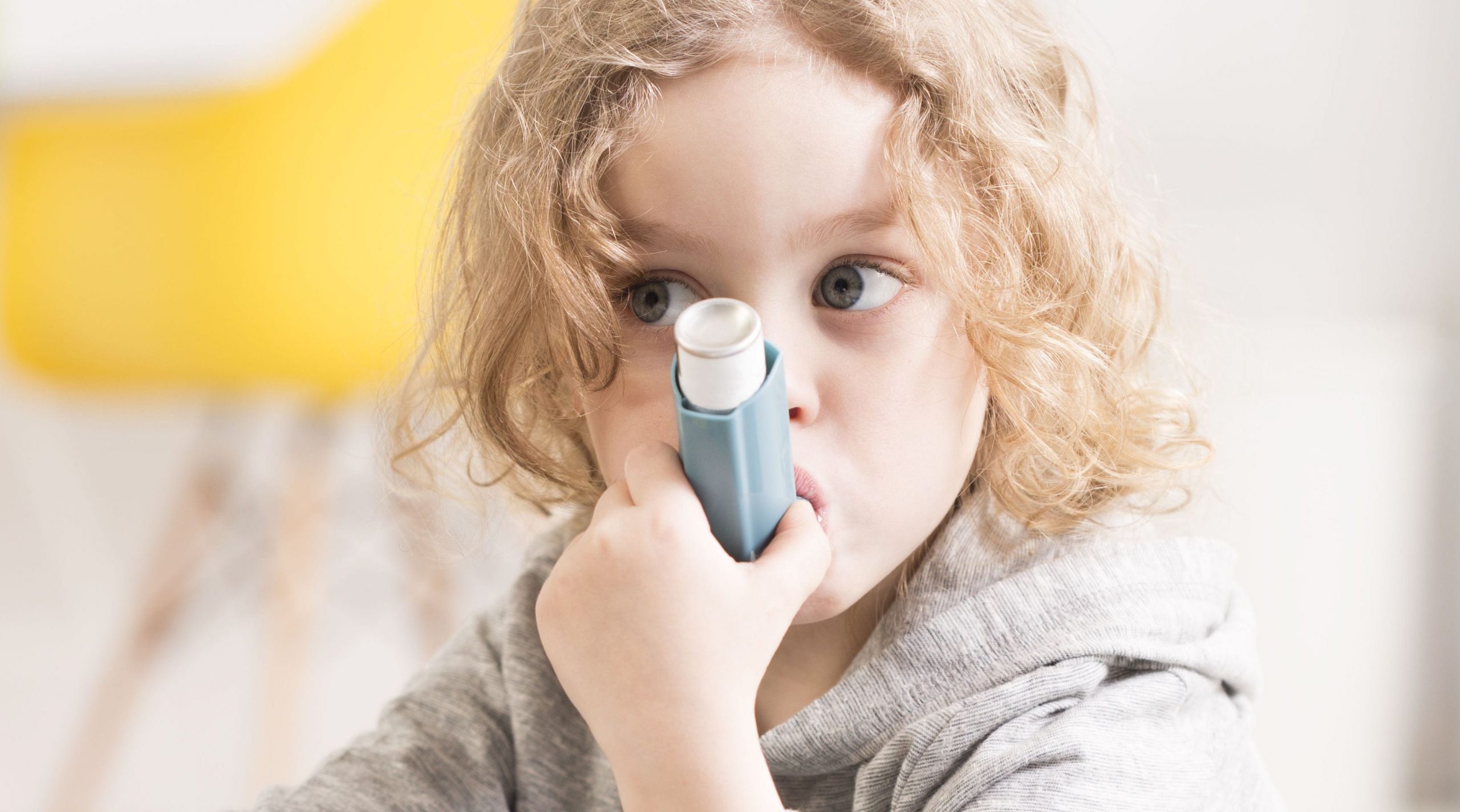“Mom, I don’t feel good.”
“Dad, I have a sore throat.”
You hear these words just as your child is waking up to get ready for school. You think, “Oh no, do I keep them home, do they need to go to the doctor, or are they not really sick at all?” For parents of kids with asthma this can be a difficult decision, as asthma flares are often triggered by respiratory illnesses. A child with asthma not only has to battle cold symptoms but also manage the additional asthma symptoms of cough, shortness of breath, and wheezing.
The first step is to ensure day to day symptoms are well controlled and a written plan is in place for when asthma symptoms start. Well controlled asthma will result in fewer flares from colds and allergen exposure. Symptoms during exercise can be a clue that asthma is not well controlled, so ask your child how they feel during physical education, recess and any exertional activities. During those activities do they cough, have to take more rest breaks than others, have trouble keeping up or feel that they need their albuterol inhaler (rescue medication)? If symptoms are occurring more than 1-2 times per week then it is important to follow up with their board certified allergy & asthma specialist to optimize medications and allergen avoidance strategies.
The second step is ensuring your child’s teacher and nursing staff have immediate access to a written asthma action plan and are ready to put it in action. A written action plan will help guide staff on which medications are to be used and how often, when to call the doctor or emergency services and reassure you that the school has the tools to take care of an asthma flare. At the beginning of the year take time to meet with your child’s teachers, physical education teachers, and nursing staff to review the action plan, ensure quick reliever medication will be easily accessible and what help your child needs to use their inhaler properly. This will also give you an opportunity to ask teachers that will be monitoring your child during recess or physical education to contact you if they notice symptoms during activity.
Green Zone: OK to Attend School
In general, if your child is in the GREEN ZONE of their action plan and have no other limiting symptoms such as fever or vomiting then they should be able to attend school.
Yellow Zone: Stay Home from School
Your child should stay home if they are in the YELLOW ZONE and they have any of the following:
- Limited sleep the night before from asthma symptoms
- Fever over 100 or they feel weak, tired or not able to do usual activities of school
- Signs of respiratory illness with persistent cough that is not well controlled with albuterol inhaler, sore throat or enlarged lymph nodes
- Wheezing, coughing, shortness of breath that is not controlled with albuterol every 4 hours
- Peak flow readings in the yellow zone after albuterol inhaler
If your child is in the yellow zone but well controlled with albuterol no more often than every 4 hours and there are no other limiting symptoms then it may be reasonable to send them to school. Be sure to contact your child’s teacher and the nurse to ensure they are aware that your child will need albuterol every 4 hours and provide instructions on exercise precautions. In this case, recess outside in comfortable temperatures would most likely be ok, but timed or competitive runs in physical education would not be recommended. Also, it would not be recommended to send your child on a field trip if they were in the yellow zone and needed albuterol frequently.
Red Zone: Seek Professional Help
If your child is in the RED ZONE then school attendance would not be recommended as the child needs close observation and evaluation by your board certified allergy & asthma specialist or emergency department. Take the opportunity to curl up with your child, keep close watch and spend some special time together.
Children with asthma should be able to participate in school activities without frequent absences. If your child is not able to attend school regularly then be sure to discuss this with your board certified allergy & asthma specialist so they can help get your child on the best treatment plan. If you think an appointment needs to be made for your child to be evaluated, please give us a call.




